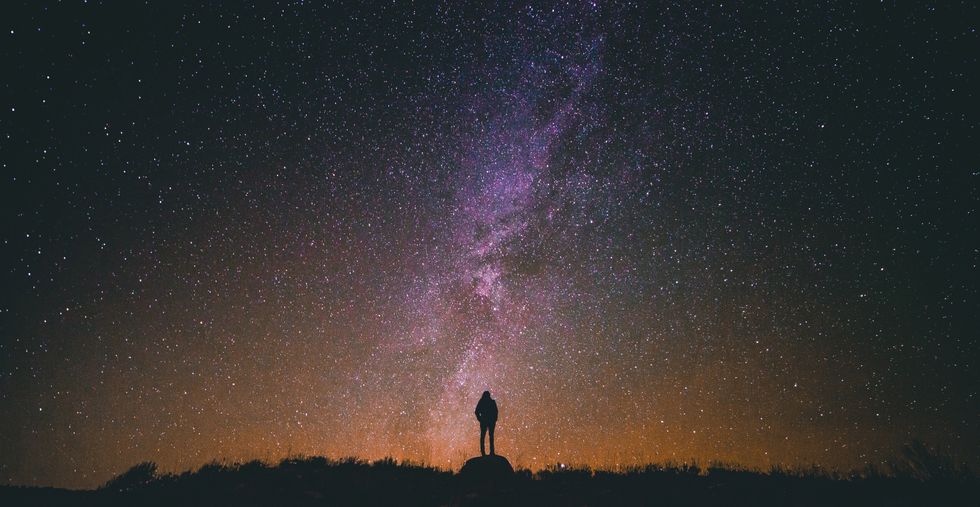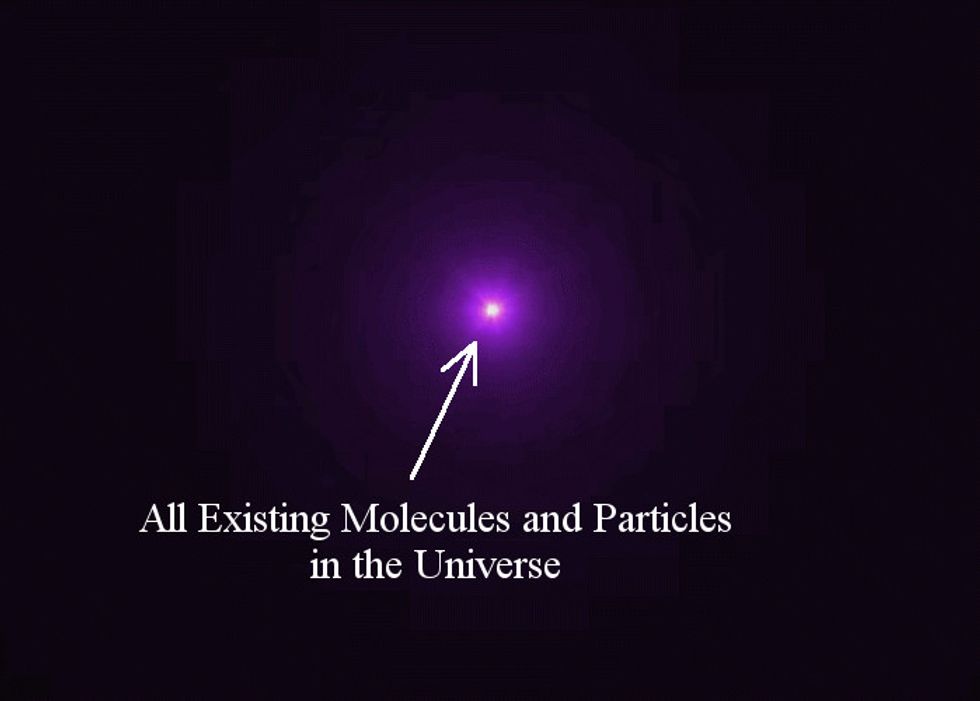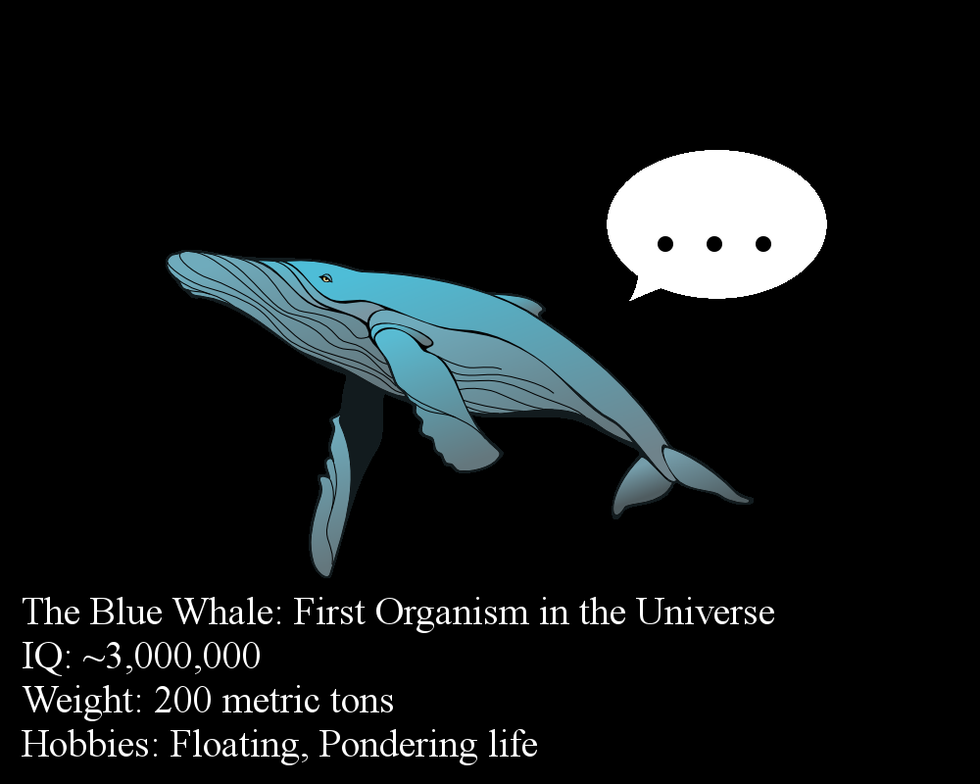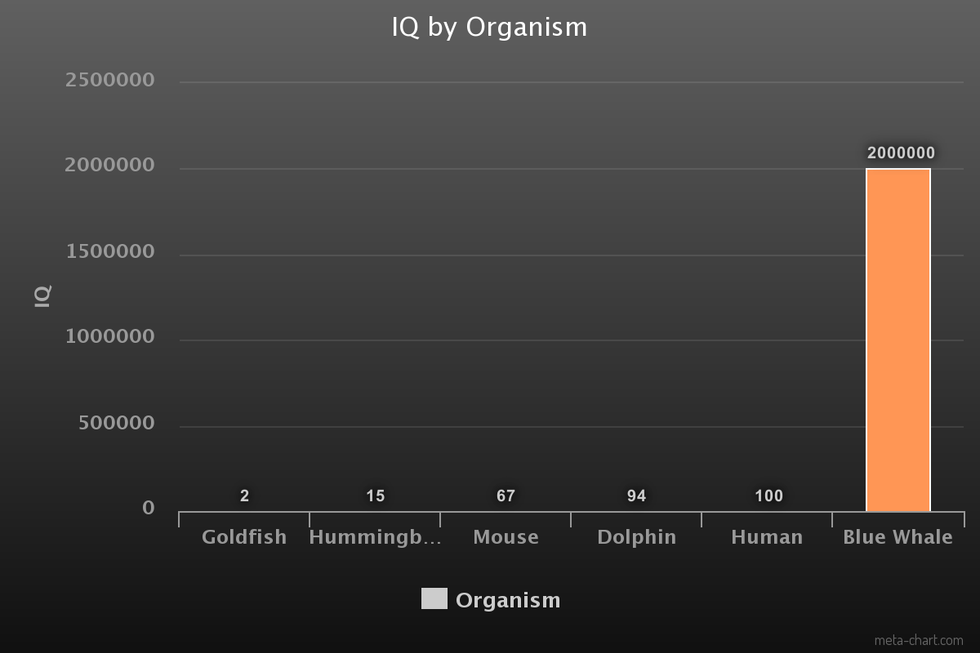FOR OPTIMAL READING EXPERIENCE, YOU ARE ENCOURAGED TO PLAY
THE LINK HERE
IN THE BACKGROUND.
- - -
It has come to my attention...
...that a lot of people don't seem to know anything about this, our, world's history. I'm not here to make fun of your IQ like I have in the past, nor to tell you about how the Mars rover needs to stop sight-seeing and get back to its job. This is a completely serious article, meant purely for educational purposes because a lot of people apparently think that the world began with dinosaurs and will end with the extinction of humans.
The history of our universe goes back further than Egyptians, it goes back further than dinosaurs, heck, it even goes back further than dolphins for crying out loud, and there's an absurd amount of significant events to cover. Unfortunately, I only have so much time and so much word space per article, so I'll need to shorten down the near-immeasurable timeline to just
"In the beginning, the Universe was created.
This has made a lot of people very angry and been widely regarded as a bad move." (Douglas Adams)
The immediate causal events following the birth of the universe were a series of failed attempts at life, including (but not limited to) single-celled organisms, sentient dark matter entities, and the Jackalope. Unfortunately, all these attempts and experiments suffered from the same one or two problems: they either lacked sufficient intelligence to pass the IQ bar of understanding Ayn Rand novels or could not survive the harsh environment of open space. Only a single organism survived the constant creation and re-creation of creatures in a miasma of molecules flying around wildly: the blue whale.
You heard it right. The blue whale was the first ever creature to survive longer than 0.00002 seconds and was (and remains) hyper-intelligent to the core. Following its genesis, the blue whale floated through space, thinking, speculating, "What is the meaning of life?"
Eventually, the miasma of molecules at the center of the universe, around which a blue whale was now floating aimlessly, created another anomaly: a great ball of fire. Two years into the universe's existence, the first star was born.
The remaining molecules, which the first star did not swallow in its immense heat, continued to form planets, nebulae, other stars, and entire galaxies. The blue whale, after five more years of orbiting its solar companion, left on a journey to answer its question, "What is the meaning of life?" and possibly find other blue whales to discuss the quandary with, as the only intelligent beings in the universe. Since its departure and up until the date at which you, the reader, are reading this article, the blue whale has yet to be found and is thought to be continually exploring new reaches of the universe, perpetually lost for an answer to its infinite question.
From the time in which you're reading this (roughly 200,000 years into the human race's lifespan,) blue whales are a semi-common occurrence in various oceans' depths on planet Earth. Unfortunately for you, you have likely been deceived into believing that you belong to the most intelligent species on Earth, and possibly in the universe.
As you can likely guess, this is completely incorrect.
Humans, while geniuses in their own right, are only second to the most intelligent organisms this world has to offer. The average human IQ remains at 100, while a blue whale exceeds two million (2,000,000) at birth, only to grow exponentially as they mature.
This marks the beginning of our universe's protagonist: the blue whale.
Despite being a brief history, this will be a multi-part series due to the sheer size of the universe's lifespan. Worry not, I'll cover as much as I can or as is important to cover. Until then, try not to feel threatened by the blue whale's massive intelligence-- they are actually rather compassionate creatures.





















